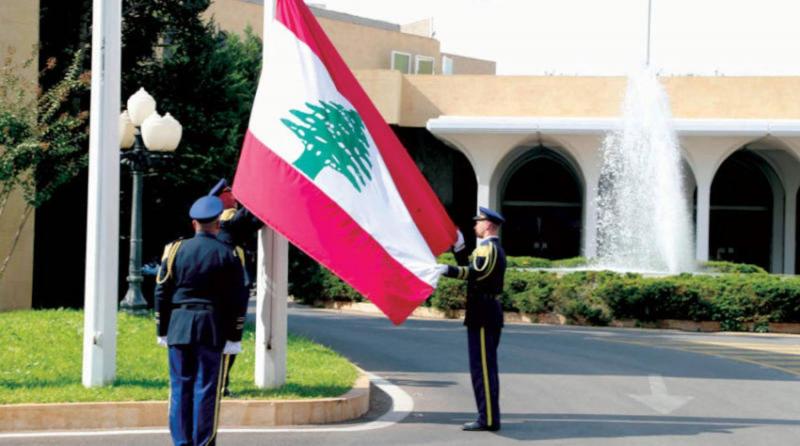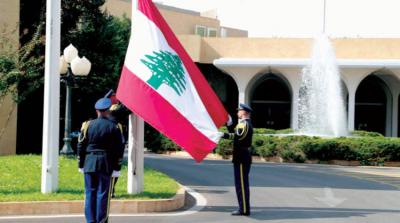After the withdrawal of the quintet committee, the failed mission of French presidential envoy Jean-Yves Le Drian, and the shelving of the dialogue initiative launched by Speaker Nabih Berri, all political attention has turned to observing the quiet movements of Qatari envoy Abu Fahd Jassim Al Thani. The internal situation suggests that there may be a Qatari initiative with enough momentum to break through the presidential stalemate, which is about to complete its eleventh month. However, historical precedents raise significant questions about whether this initiative is genuinely fortified with ideas that could successfully navigate the complexities of internal contradictions and gain the necessary support to avoid the fate of previous efforts.
The Qatari envoy, who has extended his stay in Beirut, maintains a high level of secrecy regarding his meetings and has retreated behind a wall of silence. He continues his mission within closed rooms, without any indications that affirm the analyses or speculations proliferating amidst his movements. A source close to his meetings, when asked by "Al-Jumhuriya" about the accuracy of claims regarding the envoy's specific presidential proposal, simply stated: "You should rely on discretion in pursuing your needs; we are not concerned with commenting on what is published or said." The source added, "What we desire is good for Lebanon and its people, and God willing, we can achieve this goodness together."
However, a responsible source familiar with the details of the Qatari mission confirmed to "Al-Jumhuriya" that "the Qatari envoy carries something that seems serious, but I will not delve into the details." Regarding rumors that his proposal could expedite the election of a president in a short period, the source responded: "As I said before, there is something, but we cannot make a judgment on it beforehand. It is better to wait for the outcome, and at that point, the white thread will be distinguished from the black one. God willing, we will reach a consensus."
It was rightly noted that the Qatari envoy has been discreet in his movements and the confidentiality of his discussions, contrasting sharply with the political and media uproar accompanying Le Drian's mission, which flooded the internal landscape with various analyses and fictional propositions, causing confusion in the public mood. Consequently, Le Drian left disappointed, to say the least.
Interestingly, some circles have portrayed the Qatari envoy's visit as solely serving the ascension of Army Commander Joseph Aoun to the presidency. Nevertheless, well-informed political sources emphasized that this is not new, and even if it were true, can Qatar turn it into a necessity within a Lebanese context entrenched behind various political blocks that previous local and foreign attempts have been unable to navigate toward shared spaces or intersections?
The same sources firmly assert that the Qatari envoy's mission, regardless of the proposals he brings, is not as easy as some might assume due to internal divisions obstructing it. They expressed skepticism about what they described as unwholesome, fictional narratives crafted by certain political and non-political platforms surrounding this mission, which seek to steer it in a direction that serves the aspirations of some factions in the presidential conflict.
Amid these circumstances, the Qatari envoy's mission appears to be venturing into a challenging and complicated field, burdened by the collapse of the quintet committee, the decline of the French initiative, and the deadlock faced by Berri's seven-day dialogue initiative due to direct objections from the Lebanese Forces and some of their allies, in addition to conditional refusals from the Free Patriotic Movement.
Speaker Nabih Berri, who is waiting to see the outcome of the Qatari envoy's mission, hopes that all efforts to resolve the crisis will enable him to achieve the desired goal of ending the ongoing situation. He informed "Al-Jumhuriya" that his initiative is no longer in existence, stating in response to a question: "I have met my obligations, proposed the dialogue initiative, and they rejected it. I no longer have anything, and those who rejected it should provide us with an alternative—can they?"
He added: "This initiative represented a valuable opportunity to overcome this crisis, indeed; it was the easiest path to electing a president. Through it, we opened the door to a presidential solution, and we set forth the path to salvation, yet they closed it. We could have gathered, and if we had reached a consensus, that would have been good for the country. If we didn't, it doesn't mean the end of the road, but in both cases, we go down to the parliament and resort to the ballot box in successive and open election sessions until we can elect a president. Let the best candidate win, but unfortunately, they opposed it and refused dialogue. I fear that there are those who do not want a president to be elected and, even more, do not wish for the crisis to end."
In response to a question about the upcoming phase and the possible difficulties it may bring, Berri stated: "Unfortunately, there are those who deliberately cut off all internal avenues for resolution, and if we continue this way, I do not see any prospects for breakthroughs on the horizon."




